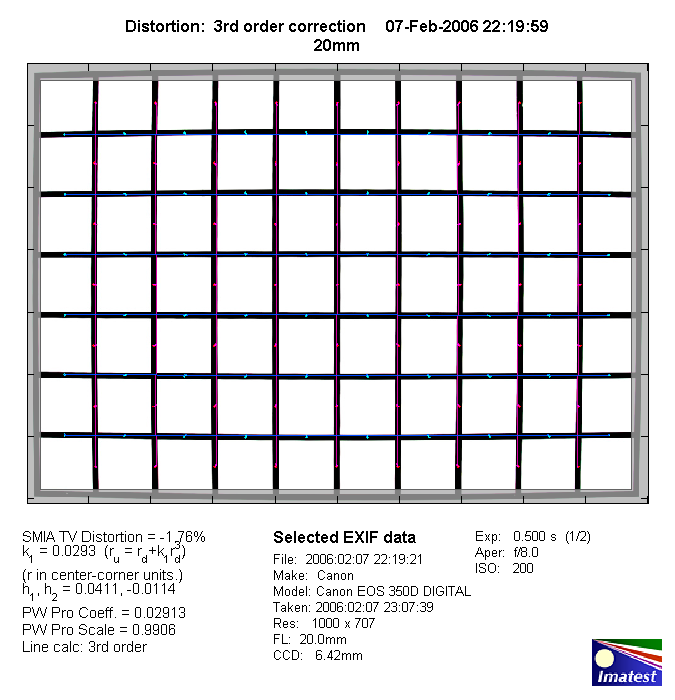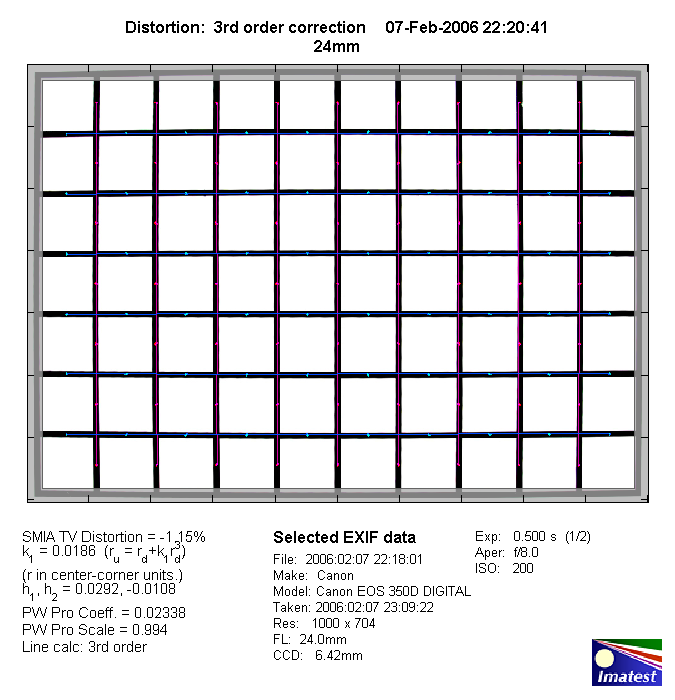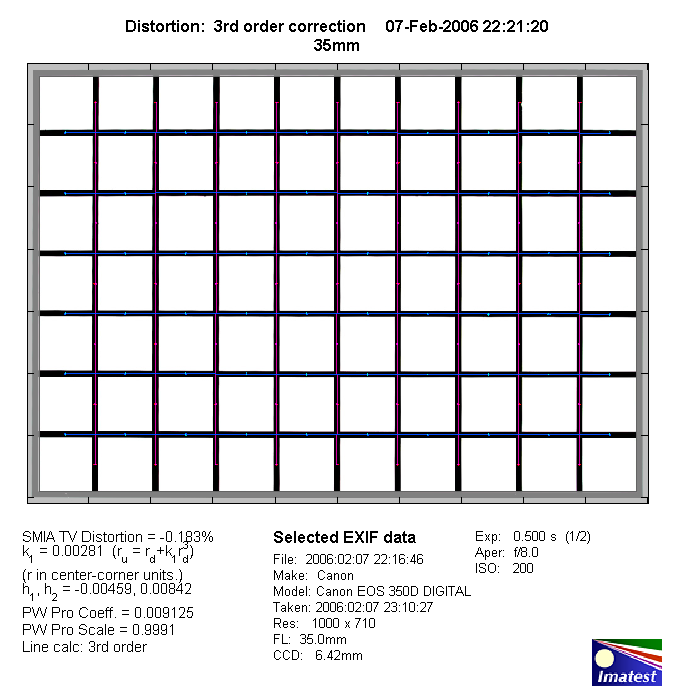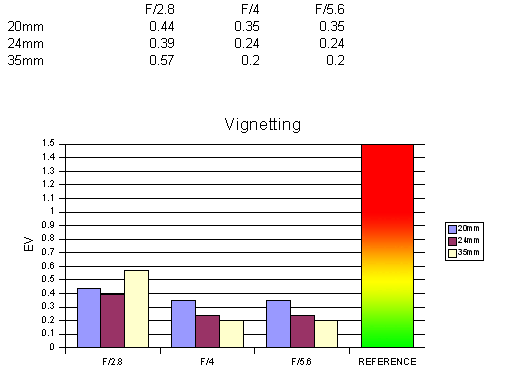|
Canon EF 20-35mm f/2.8L - Review / Lab Test Report - Analysis |
|
Lens Reviews -
Canon EOS (APS-C)
|
|
Page 2 of 2

Distortion
Typical for many ultra-wide lenses the EF 20-35mm f/2.8 L suffers from
pronounced barrel distortion (1.8%) at the wide end of the zoom range.
The situation eases towards the 35mm setting where the lens shows a
marginal degree of barrel distortion.
20mm:

24mm:

35mm:

The chart above has a real-world size of about 120x80cm.
Vignetting
As mentioned above the Canon lens is a full frame lens so on APS-C
it can take advantage of the sweet spot effect. As a consequence
vignetting is low even at wide-open aperture. At f/4 the issue
is absolutely negligible.

MTF (resolution)
In the lab the oldie showed that it's not ready yet for retirement.
The center resolution is excellent throughout the zoom range.
The borders are only good at f/2.8 but the quality increases
rapidly towards medium apertures where it hits very good to
sometime excellent levels.
This sounds very promising but it is worth to notice that it was a
little difficult to do the MTF tests because the lens suffered from a
quite pronounced field curvature. For most applications field
curvature is no issue but you should stop down if you intend to
shoot flat objects at close focus distances.
Below is a simplified summary of the formal findings. The chart shows line widths
per picture height (LW/PH) which can be taken as a measure for sharpness.
If you want to know more about the MTF50 figures you may check out the corresponding
Imatest Explanations
Chromatic Aberrations (CAs)
Chromatic aberrations (color shadows at harsh contrast transitions) are very pronounced
with this lens peaking in the average CA pixel width of ~1.3 pixels at the image
borders. Not impressive but this is quite typical for zoom lenses of this range.

Verdict
The Canon EF 20-35mm f/2.8 L may be old, even ancient by consumer electronics standards
but it's still capable to deliver high quality images specifically regarding resolution
and low vignetting (on APS-C DSLRs) whereas distortions, field curvature and CAs are a
little on the high side. Thanks to L-grade build quality it feels very
solid but expect that time has taken its toll from a ~15 years old lens. If you can find
a sample in decent condition it is still worth a deeper look but remember that it is
probably beyond repair in case of malfunctions due to rare spare parts.
|